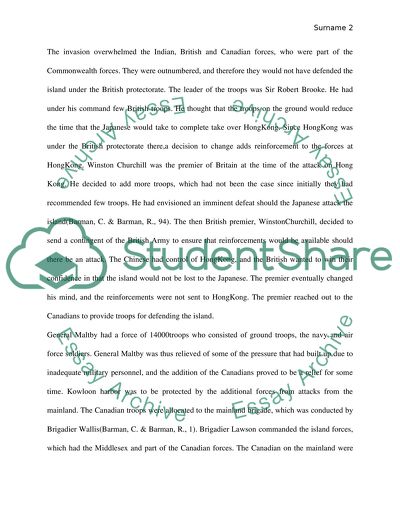Cite this document
(“Canadian defence at the onset of the Battle of Hong Kong, 1941 Essay”, n.d.)
Canadian defence at the onset of the Battle of Hong Kong, 1941 Essay. Retrieved from https://studentshare.org/history/1685124-canadian-defence-at-the-onset-of-the-battle-of-hong-kong-1941
Canadian defence at the onset of the Battle of Hong Kong, 1941 Essay. Retrieved from https://studentshare.org/history/1685124-canadian-defence-at-the-onset-of-the-battle-of-hong-kong-1941
(Canadian Defence at the Onset of the Battle of Hong Kong, 1941 Essay)
Canadian Defence at the Onset of the Battle of Hong Kong, 1941 Essay. https://studentshare.org/history/1685124-canadian-defence-at-the-onset-of-the-battle-of-hong-kong-1941.
Canadian Defence at the Onset of the Battle of Hong Kong, 1941 Essay. https://studentshare.org/history/1685124-canadian-defence-at-the-onset-of-the-battle-of-hong-kong-1941.
“Canadian Defence at the Onset of the Battle of Hong Kong, 1941 Essay”, n.d. https://studentshare.org/history/1685124-canadian-defence-at-the-onset-of-the-battle-of-hong-kong-1941.


